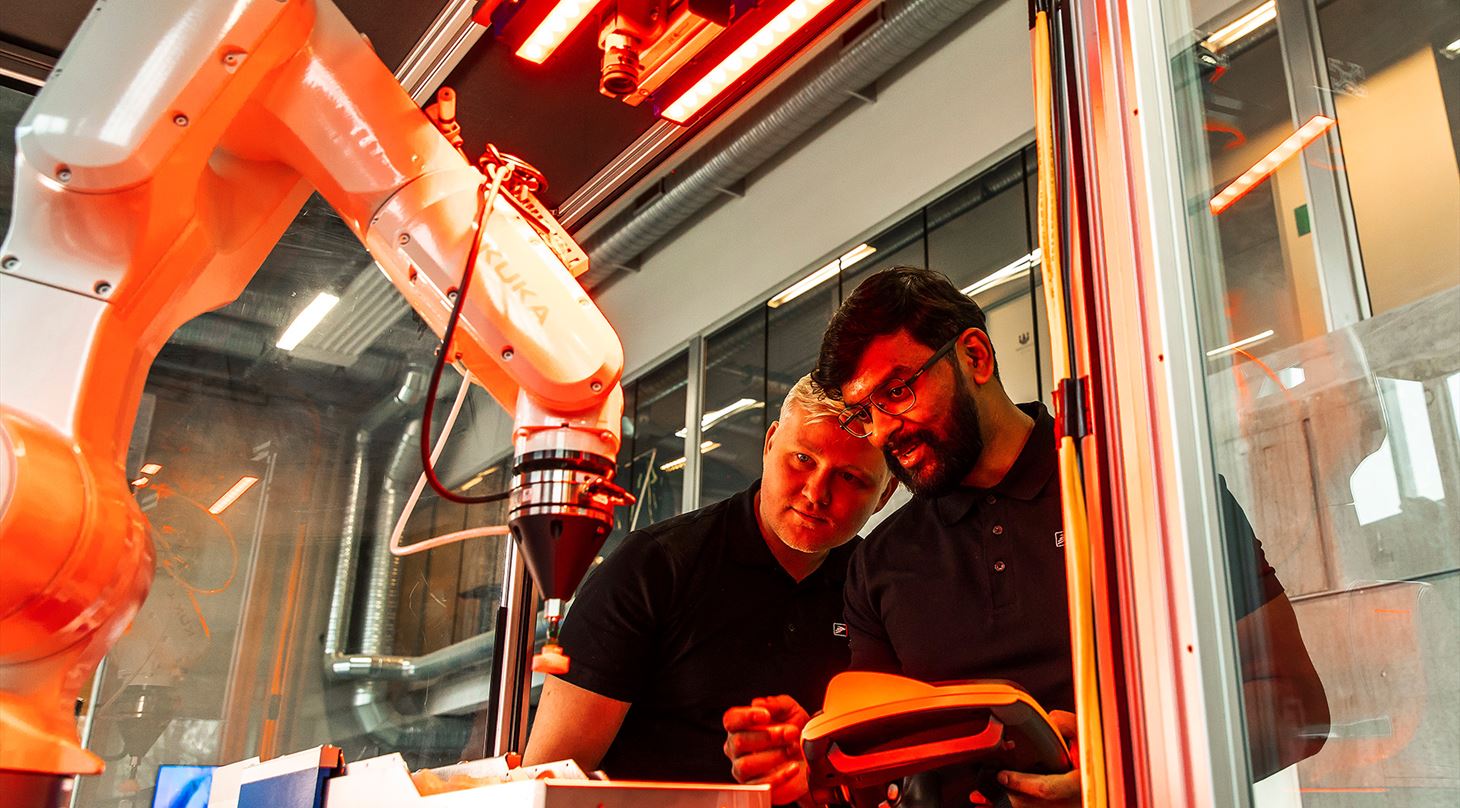
Great untapped potential for using artificial intelligence in Danish production companies
Press release published on 30 May 2024
There is great potential when it comes to the use of artificial intelligence in manufacturing companies, but very few companies make full use of the technology's many possibilities, a new report shows.
Although a large proportion of Danish companies recognise that there is great potential in the use of artificial intelligence (AI), the companies hesitate to introduce AI into their own production.
According to the report "Robot technology and artificial intelligence in Danish industry: Spread, potential and challenges" from the Danish Technological Institute (DTI), 84 percent of companies see potential in the use of artificial intelligence, but only use it to a limited extent today. Only two percent of the companies see themselves as frontrunners in the field.
The purpose of the report is to uncover the spread of robotic technology and AI in Danish industry. In addition, it examines companies' motivation, the perceived benefits of robotics and AI, and the challenges of implementation.
Recognise the potential
– There is no doubt that large sections of Danish industry recognise the potential of using AI in production. But even though the potential is well known, it is still a relatively young technology, and therefore experience with implementing AI solutions in production is also limited. Thus, we are left with a large untapped potential for using AI in production companies, says Technology Director Kurt Nielsen of DTI.
In recent years, AI has really gained ground in the minds of companies. In particular, freely available AI tools based on large language models have carried AI high up the list of most important topics in many boardrooms.
For manufacturing companies, the possibilities are not only related to language models that can create text, but also the automation of sub-processes, based on machine learning. Some of the obvious cases for machine learning are inspection, preventive maintenance, quality control and resource optimisation.
Barriers to the use of artificial intelligence
According to the study, one factor in particular is helping to slow down the spread of AI. 62 percent of companies state that the biggest barrier to implementing AI is a lack of knowledge and skills.
In addition, just under one in four companies (23 per cent) feels that data handling constitutes a barrier to the implementation of AI, while a full 22 per cent are unsure what the barriers actually are. On the other hand, they are open to the introduction of AI in their company. Just five percent of the companies answer that resistance among employees is a challenge for the spread of AI in company operations.
– This openness towards AI is an important first step towards a higher degree of diffusion of AI technologies. But it takes something to throw yourself into these advanced technologies. Although you don't need to be an expert, implementing robotics and AI successfully requires knowledge, skills and a dedicated focus. In the end, AI can contribute to increased competitiveness, a better physical working environment, and solving challenges around the lack of labour in the future, says Director Henrik Jacobsen from DTI.
DTI estimates that AI will be one of the most potentially decisive technologies in Denmark in the next four to five years.
– AI has the potential to change many of the ways we solve tasks today, e.g. by making robots more intelligent, and this can contribute to a large increase in productivity. AI can also create completely new types of services and thus open up new markets. That is why AI is an essential factor in maintaining Denmark's competitiveness and production, states Technology Director Kurt Nielsen.
Download the report "Robot technology and artificial intelligence in Danish industry: Spread, potential and challenges"
Five suggestions from DTI: How your manufacturing company can assess the introduction of artificial intelligence
1. Development of internal training programs
Invest in tailored training programs that focus on AI and its application in manufacturing environments like yours.
2. Cooperation with knowledge institutions
Establish partnerships or collaborative projects with universities, technical schools, GTS (e.g. DTI) or participate in existing collaborative projects and initiatives
3. Recruitment of AI specialists
Recruit employees who possess the knowledge and skills to work with AI in production environments
4. Knowledge sharing through networking groups and informal networks
Seek out knowledge and experience through participation in networking groups and informal networks - both internally within the company and across the industry
5. Cooperation with private, external advisers
Collaborate with dedicated external advisors with special skills in AI who can offer in-depth expertise and support for specific projects
About the study
The study as a whole was based on a combination of methods. A questionnaire-based survey was carried out and seven in-depth interviews conducted with representatives of selected companies.
In order to obtain a bigger picture of the spread of robots in Danish companies in the years 2023 and 2024, DTI (the Danish Technological Institute) carried out questionnaire surveys in 2023 and 2024 respectively with top managers and production managers from various industrial companies.
The analysis was carried out as part of DTI’s work with performance contracts PI1 and PI2, which are financed by the Danish Agency for Education and Research.
The report is published in connection with the event ROBOTBRAG 2024 on 30 May in Odense, where examples of over 100 robot and AI solutions were exhibited.
Does your company need help mapping out your robot options? The Danish Technological Institute helps companies in all phases from strategy to implementation.